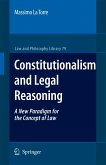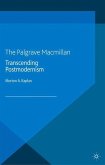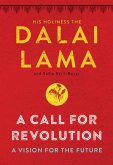Many consider conscience to be one of the most important and fundamental qualities that distinguishes humans from animals and machines, but to this day it remains a largely unknowable concept. What is conscience? Is it a product of our biological roots, as Darwin thought, or is it a purely social invention? If so, how did it come to be?
Beginning in ancient Egypt, Martin van Creveld explores conscience throughout history, ranging across numerous subjects from human rights to health. Along the way van Creveld considers the evolution of conscience in its myriad, occasionally strange and ever-surprising permutations. The book examines the Old Testament, which - erroneously, it turns out - is normally seen as the fountainhead from which the Western idea of conscience sprang. As we journey through the ages, we meet Antigone, the rst person on record to speak explicitly of conscience, and encounter the philosophers Zeno, Cicero and Seneca; outstanding Christian thinkers such as St Paul, Augustine, Thomas Aquinas and, above all, Martin Luther; and modern intellectual giants such as Machiavelli, Rousseau, Kant, Hegel, Nietzsche and Freud. Individual chapters are devoted to Japan, China and the Nazis, as well as the most recent discoveries in robotics and neuroscience. The book concludes by arguing that the claims of the articial intelligence community notwithstanding, we are still no closer to understanding the nature of conscience. As one computer expert has said, we shall probably build machines able to mimic conscience before we know what it really is.
Hinweis: Dieser Artikel kann nur an eine deutsche Lieferadresse ausgeliefert werden.
Beginning in ancient Egypt, Martin van Creveld explores conscience throughout history, ranging across numerous subjects from human rights to health. Along the way van Creveld considers the evolution of conscience in its myriad, occasionally strange and ever-surprising permutations. The book examines the Old Testament, which - erroneously, it turns out - is normally seen as the fountainhead from which the Western idea of conscience sprang. As we journey through the ages, we meet Antigone, the rst person on record to speak explicitly of conscience, and encounter the philosophers Zeno, Cicero and Seneca; outstanding Christian thinkers such as St Paul, Augustine, Thomas Aquinas and, above all, Martin Luther; and modern intellectual giants such as Machiavelli, Rousseau, Kant, Hegel, Nietzsche and Freud. Individual chapters are devoted to Japan, China and the Nazis, as well as the most recent discoveries in robotics and neuroscience. The book concludes by arguing that the claims of the articial intelligence community notwithstanding, we are still no closer to understanding the nature of conscience. As one computer expert has said, we shall probably build machines able to mimic conscience before we know what it really is.
Hinweis: Dieser Artikel kann nur an eine deutsche Lieferadresse ausgeliefert werden.








